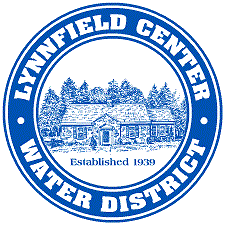Published March 10, 2021

LYNNFIELD – The Lynnfield Center Water District Board of Water Commissioners is inviting the public to hear a final presentation on the district’s capital program on Monday, March 15 on Zoom teleconference.
The capital program is the result of 18 months of study by the district, commissioners and their consultants, and is designed to address ongoing issues with water supply and water quality.
The Capital Program contains three projects.
Project 1: Reinstate Station 1
Station 1, the LCWD’s original station, was built in 1937 and has been upgraded several times. The district voluntarily took the station offline in 2017 when testing showed nitrate levels were increasing, though still within safe drinking standards.
Station 1 returned to service in the summer of 2020. The district declared a water emergency with the Department of Environmental Protection (DEP) due to consistently high daily water usage. The higher usage resulted in lower water pressure and could have hampered the Lynnfield Fire Department’s ability to fight fires in some areas. This opened the opportunity to return this station to use and demonstrate and document its performance.
“Given its strong performance, the district’s consultants recommend that Station 1 continue to be used seasonally,” said LCWD Superintendent John Scenna. “This will require a review and formal permitting by the Massachusetts Department of Environmental Protection.”
Scenna said the DEP could require the district to upgrade components of Station 1 or operating procedures before issuing a permit. This process has commenced, and the district is awaiting comment from the DEP.
Project 2A/2B: Supplemental water
The LCWD’s consultants, CDM Smith, also recommend that the district connect with the town of Wakefield’s water supply, which would allow the district to receive supplemental water from the Massachusetts Water Resources Authority.
“Under the proposal the Wakefield and Lynnfield Center systems will be connected at Main Street and Bay State Road,” said Scenna. “The connection with Wakefield could add up to 250 gallons per minute of MWRA water to the district’s capacity, improving flow and water pressure. This would supplement existing supply by nearly 25 percent.”
The MWRA will charge the LCWD between $1.5 million to $1.6 million to join, and $250,000 to $350,000 for permitting.
“This initiation fee is traditionally calculated into their rate structure over initial years of membership,” said Scenna. “In consideration of possible future need for additional supplemental water, the district will request a permit for 500 gallons per minute, which will cost no more for permitting, but will give the LCWD access to nearly 50 percent of existing supply should need change and grow in time.”
The district and its consultants looked into connecting with other communities or water districts, but consultants determined that those options are impractical or too costly.
“The district estimates that receiving all water from the MWRA would cost $18 million to $20 million,” said Scenna.
If approved by the LCWD’s Annual Meeting on May 10, the Wakefield connection will begin construction this fall, with work continuing through 2022.
Project 3: Greensand filtration plant
CDM Smith’s consultants have recommended construction of a greensand filter treatment plant at the Glen Drive station.
“Greensand filtering is a proven technology being used at the district’s Phillips Road plant and throughout New England,” said Scenna.
Scenna said the new plant will improve water taste, color and odor, and other recurring issues that are caused by excess iron and manganese occurring naturally in groundwater. The plant also will give the district the ability to treat water in the Main Street area in the future, bringing the town’s treatment efforts to 100 percent.
The plant will cost $6 million to $6.5 million. If approved by the district meeting, construction will begin in 2022, with anticipated completion in 2023.
“If all projects get approved, the district will see increased capacity and improved quality while protecting its groundwater sources, the Ipswich River Watershed, and the North Coastal Watershed,” stated Scenna.
Scenna noted that the average ratepayer will see bills increase gradually as construction begins. The district estimates the average bill will rise by $200 per year when all projects are complete.
The Dec. 14, 2020 presentation by consultants CDM Smith on the water system’s future needs may be found at https://vimeo.com/492700722.
The Jan. 25 presentation by consultants CDM Smith on the Glen Drive plant proposal may be found at https://lcwd.us/wp-content/uploads/sites/184/2021/02/LCWD-January-25-2021-Greensand-Presentation.pdf.
Following the March 15 presentation, commissioners are expected to vote whether to bring the Capital Program forward to the Annual District meeting on May 10 for consideration by ratepayers.
The March 15 meeting begins at 7 p.m. The LCWD Board of Commissioners and Scenna meet virtually using the Zoom platform during COVID-19. Public participation is encouraged. Zoom links and information will be included in the posted agenda. Residents will be asked to state their name and address upon being allowed into the meeting.
Meeting agendas are posted at least 48 hours in advance at https://lcwd.us/.
If residents have questions or concerns about the Capital Program or questions in general, they should contact the district office directly at 781-334-3901 or email them to lcwd@lcwd.us.




